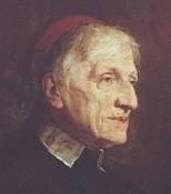Foster writes in his Preface that since 1983 he has "devoted his life to an intense study of God's Word, the Bible." During this time, he says, he has also "endeavored to know the true God more intimately while trying to discover and somewhat understand certain objective facts pertaining to His divine nature or endearing attributes." Such expressions of piety are so few and far between today as to seem almost quaint, if not refreshing. But the reader is not kept waiting to discover the unorthodox twist in Foster's Christology, for he immediately adds:
In the process of searching for the living God, I have concluded that Jesus Christ simply cannot be the Most High Deity, whom Abraham, Isaac, and Jacob worshiped (Acts 3:13). Thus, I have decided to write this book in order to present my reasons for believing that God's anointed Messiah is not one persona in a consubstantial triune Godhead. Furthermore, I compose this monograph in order to present an authentic portrait of Jesus Christ since a disciple of the Lord has a twofold obligation to both expose doctrinal fallacies and communicate or teach Christian truth.Foster is a man of integrity to a fault. I respect him and admire his commitment to truth and his religious devotion. These are rare virtues these days. Yet I also think his views are mistaken and his Christology is heretical. But precisely because of the aforementioned virtues of Foster, his scholarship possesses an integrity that demands an honest accounting. Foster's book, Christology, demands a close reading and courteous refutation.
Just one stylistic comment for now: Foster refers in his notes to his own work simply as Christology, without alerting his readers to the fact that he is not referring to "Christology" in the sense of the doctrine or theory of Christ's nature. For example, in note #3 on p. 5, he writes:
Originally grammatical arguments did not play a major role in most of the arguments found in Christology.This sentence could easily be mistaken to be saying that grammatical arguments did not play a major role in the early development of Christological theories. But this is a minor detail. I kept wondering what Louis Berkhof, the author of that old Reformed classic, Systematic Theology, would think if he knew that his work elicited the appreciative remarks of a Jehovah's Witness in the opening footnote in the first volume of his heretical explorations in Christology.


